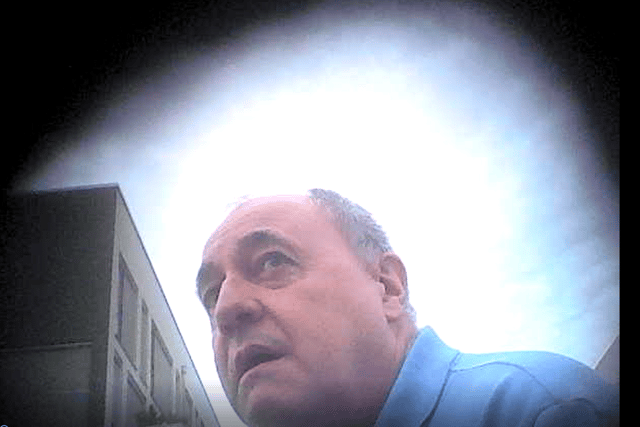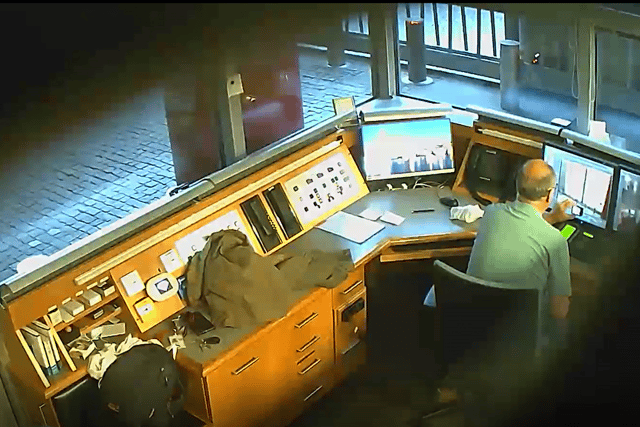British embassy guard jailed for 13 years for selling secrets to Russia
and live on Freeview channel 276
A security guard at the British embassy in Berlin has been sentenced to more than 13 years behind bars, after he was caught spying for Russia in an undercover operation.
British citizen David Ballantyne Smith, 58, pleaded guilty to eight charges under the Official Secrets Act by committing an act prejudicial to the safety or interests of the state, in November. He was sentenced in the Old Bailey on Friday (17 February), after legal arguments around his motivation for passing secret information to the hostile foreign state.
Advertisement
Hide AdAdvertisement
Hide AdSmith, a former security guard at the British Embassy in Germany, was jailed for 13 years and 2 months. The maximum sentence for his charges was 14 years.
The court heard he was motivated by his support for Russian president Vladimir Putin and hatred of the UK, when he began collecting classified documents in 2018.
He sent two letters to senior officials at the Russian Embassy in 2020 - one exposing the identity of a diplomat who had worked in Russia – as well as details of colleagues. The court was told of “potentially catastrophic” consequences for “each and every” British official in Berlin, with the cost to the taxpayer of updating security estimated at £820,000.


Embassy staff were left with “feelings of anger, betrayal and upset and concern at the implications of their details being shared with a hostile state actor”, the court heard.
Advertisement
Hide AdAdvertisement
Hide AdSmith earlier argued he did not intend to cause “prejudice” to the UK, and wanted only to cause “inconvenience and embarrassment” to the British Embassy. He claimed he was not paid for providing sensitive information, and was instead motivated by grievances with his employers while suffering from mental health issues.
But Justice Wall had dismissed Smith’s evidence, including his claim that he only wanted to embarrass the embassy. The judge ruled that the evidence showed Smith was taking money from Russia as part of an “ongoing” relationship.
He had collected material since 2018 with a view to handing it over “at some stage”, the judge found. Smith may even have been directed by a handler to film private offices, including taking photos of colleagues’ family and friends on their desks.
Prosecutor Alison Morgan KC earlier argued Smith held “strong anti-UK views”, and supported Russia and Vladimir Putin.
Advertisement
Hide AdAdvertisement
Hide Ad

“The defendant’s deliberate engagement with the Russian authorities by providing them with confidential and sensitive information demonstrates an inevitable and clear intention to cause prejudice to the UK,” she said.
Ms Morgan said the defendant had confidential and sensitive material dating back as far as 2018 in his possession. “It is implausible to suggest that he only took possession of material within the context of a dispute with his employers or because he intended to expose security lapses.”
Smith’s activities were revealed in an undercover operation, the court heard. It was prompted by a letter he sent in November 2020 to a military staff member at the Russian Embassy in Berlin, which suggested ongoing contact. In the letter, addressed to Major General Chukhrov, Smith issued a “small update about the British Embassy”, including images of staff security passes.
The undercover operation offered Smith the chance to obtain “highly sensitive information” about someone called Dmitry, who Smith was led to believe was a Russian helping the UK. “Plainly such an individual would be of obvious interest to those that the defendant was in contact with within the Russian Embassy,” Morgan said.
Advertisement
Hide AdAdvertisement
Hide AdHe was then approached by another undercover operative called Irina, posing as a Russian intelligence service agent. Morgan said after his interaction with Irina, Smith was arrested by German authorities in Potsdam - where he was living - in August 2021.
It is alleged Smith received substantial amounts of cash in exchange for his spying activities. An analysis of his finances in 2021 found an absence of cash withdrawals, indicating Smith had an alternative source of income. The court heard 800 euros in cash was seized following his arrest.
